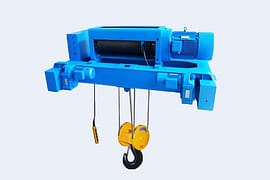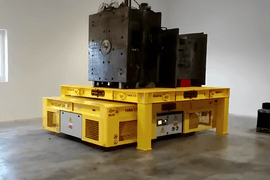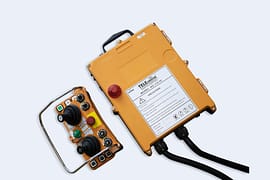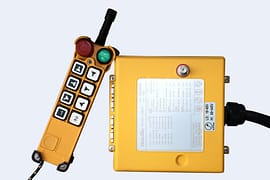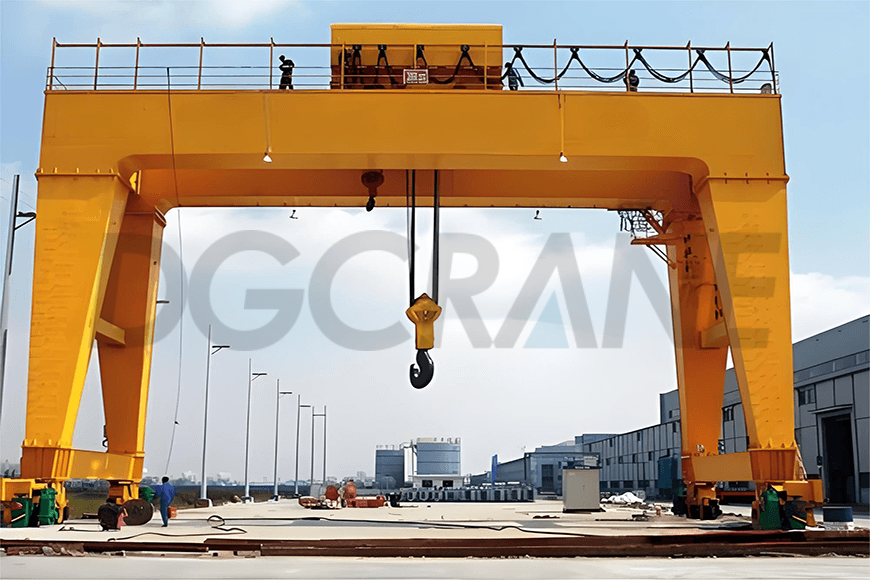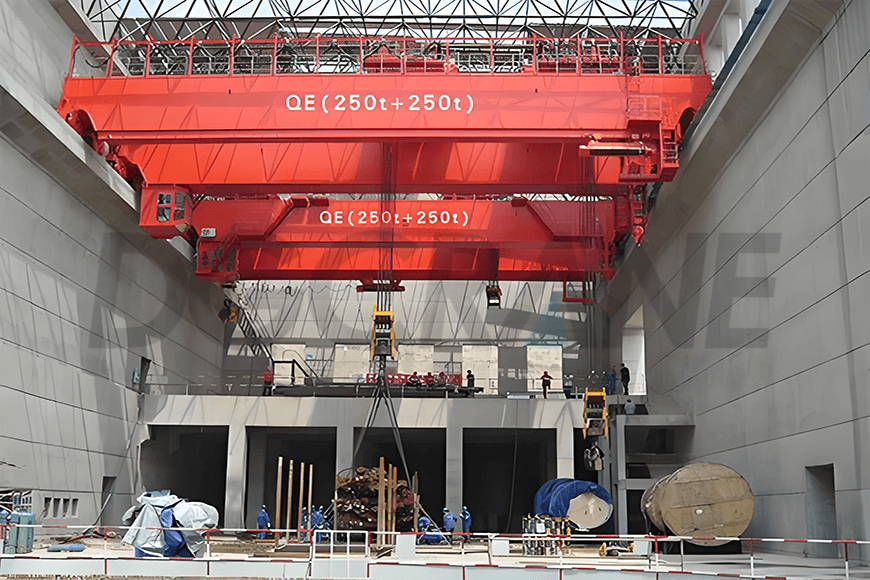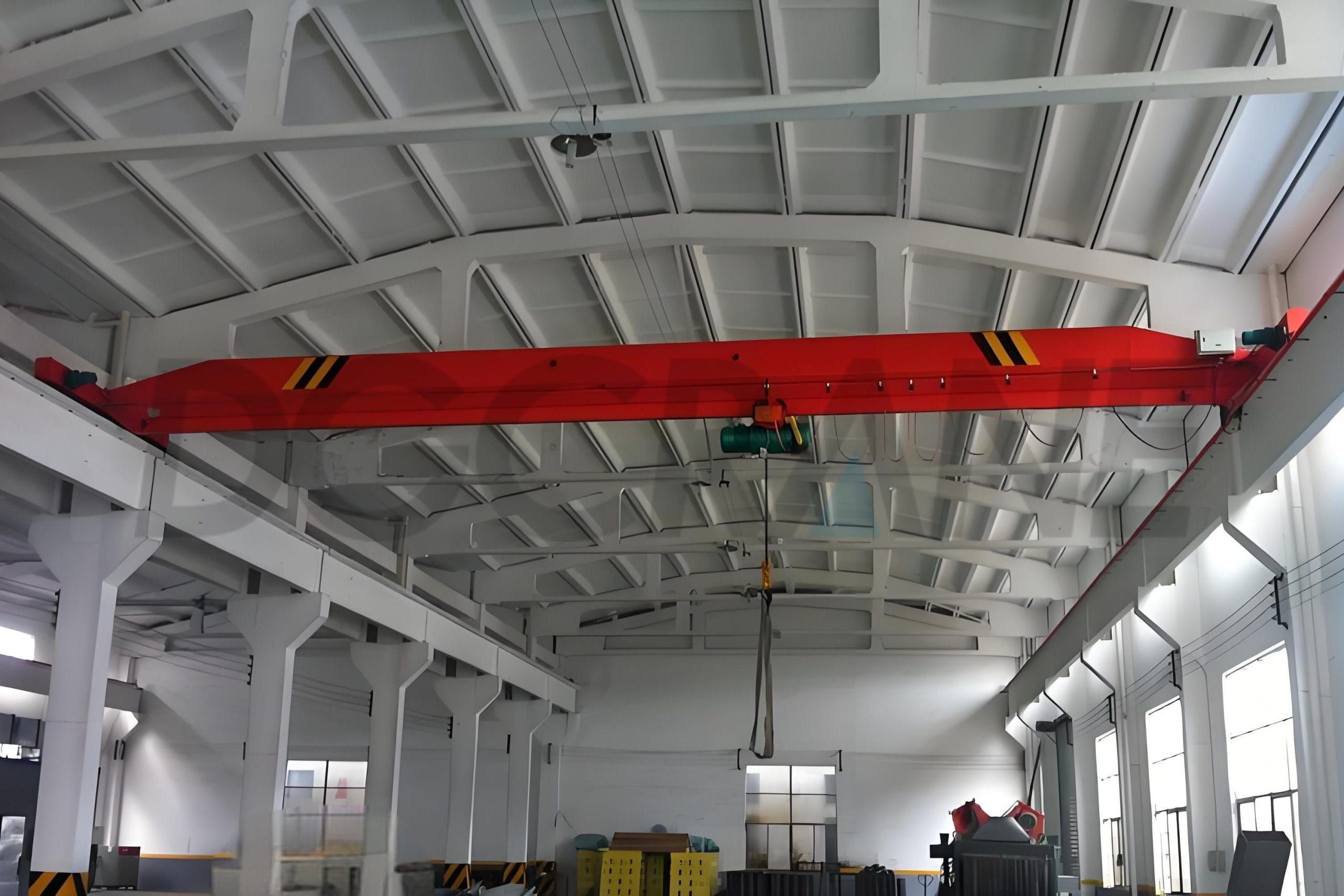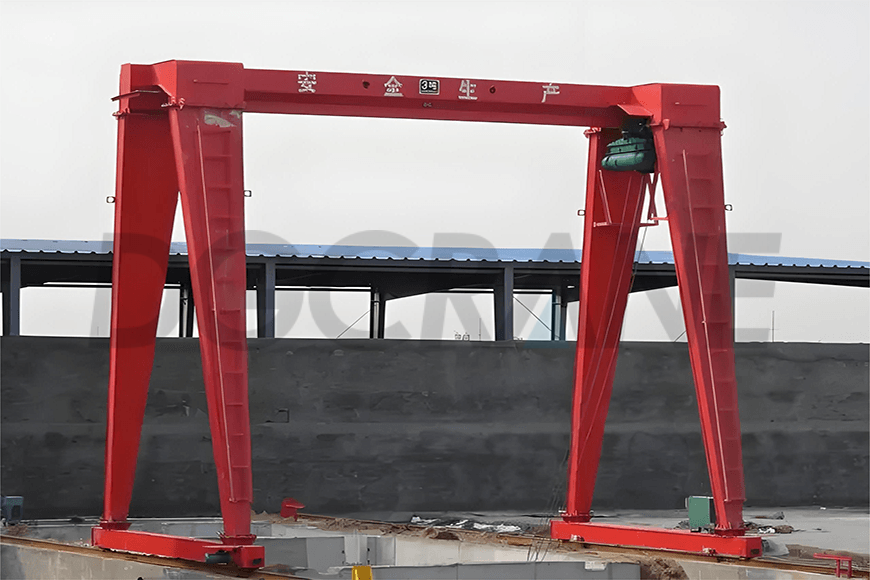Forged Crane Wheels vs Cast Crane Wheels: 6 Critical Differences Explained
Table of Contents
When selecting the right wheels for your crane operations, understanding the differences between forged crane wheels and cast crane wheels is crucial for ensuring optimal performance and safety. Each process imparts unique characteristics to the wheels, influencing their suitability for various applications. In this guide, we will delve into the 5 vital differences between forged wheels and cast wheels, highlighting how these distinctions impact their strength, durability, and overall performance.
Whether you’re working with medium to heavy-duty cranes in demanding environments or lighter-duty applications, this comprehensive comparison will provide you with the insights needed to make an informed choice. Discover how these key differences can help you achieve superior performance and reliability in your crane operations.
Forged Crane Wheels
Processing Technology
Forged crane wheels utilize a forging process. Typically, 65Mn steel billets are selected as the raw material. Through heating and forging, the billets undergo plastic deformation to form wheels, resulting in a dense microstructure and excellent mechanical properties. This is a solid-to-solid process.
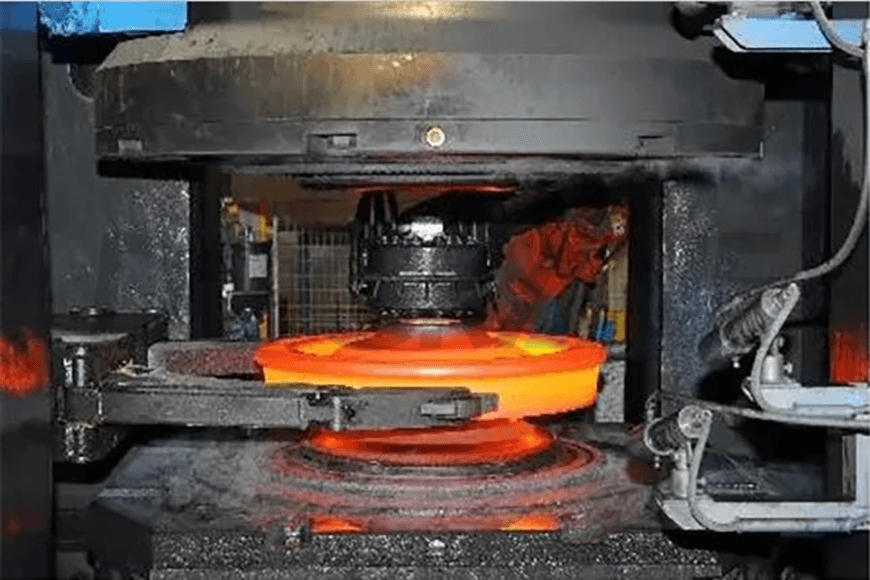
Other Processes
Forged wheels are shaped using a 10,000-ton press, where solid aluminum bars are preheated and then forged into molds. This process results in a more uniform and refined molecular structure, without defects like casting segregation, porosity, or oxide inclusions.
Forging is carried out on fully automated production lines with key process control points being temperature and pressure. The process is stable and the quality is consistent.
The forging process optimizes the metal's microstructure and eliminates defects. After forging, the wheels undergo rough machining, heat treatment, hardness testing, and precision machining.
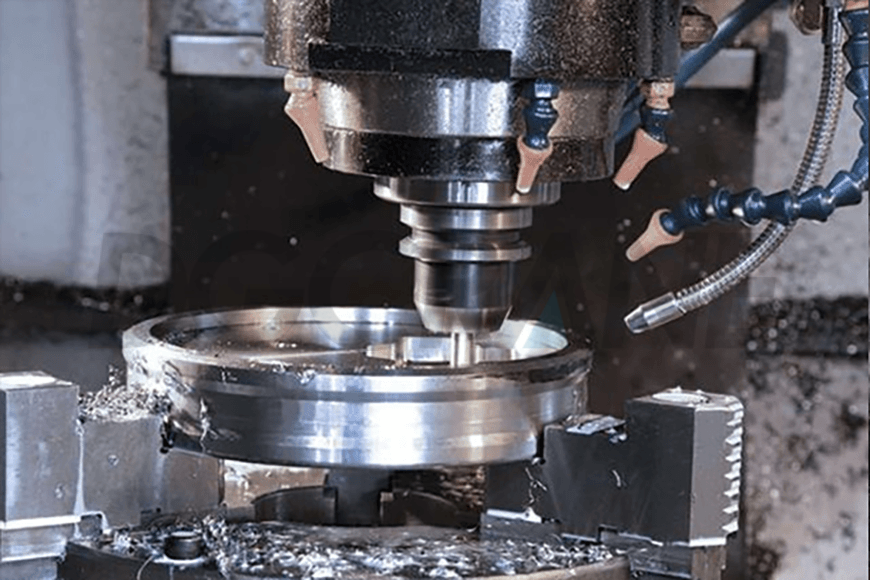
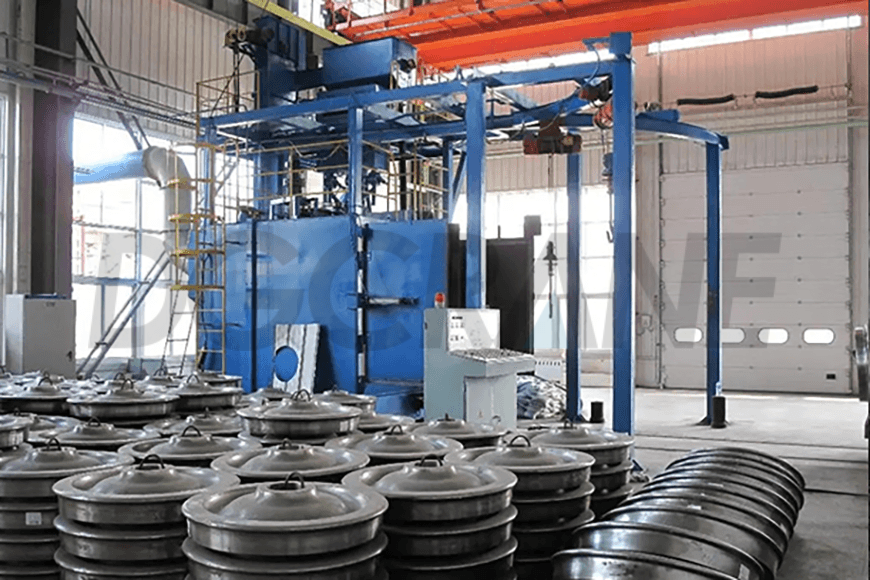
Forming Speed
The forming speed of forged wheels is relatively slow and requires advanced production equipment and skilled technicians. Forging requires repeated hammering to achieve the desired shape, but this process makes the metal's structure more compact.
Strength and Toughness
Forged metals have a fibrous molecular structure with a grain size of around 20µm, resulting in a dense microstructure and good mechanical properties.
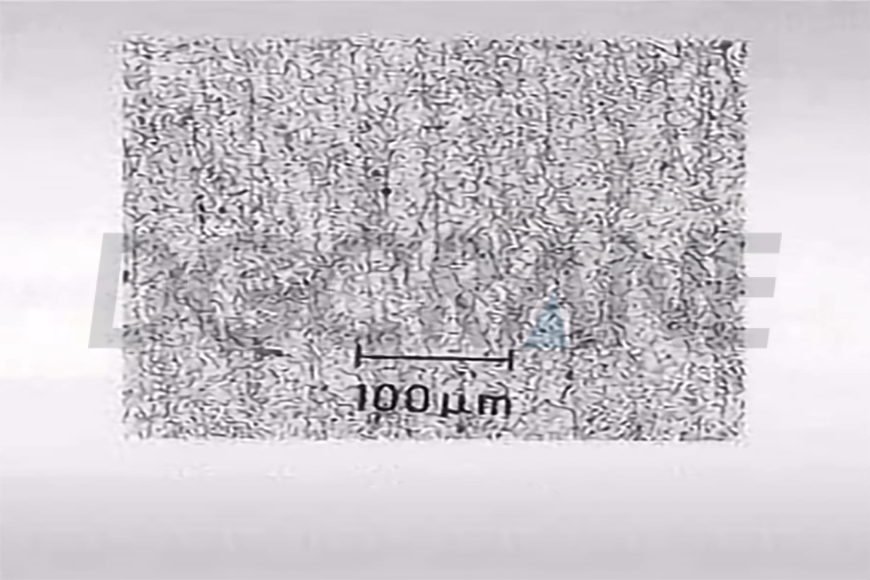
Overall Performance and Cost
Forged wheels have a dense structure with high toughness and strength. They can undergo various heat treatments to achieve better mechanical properties. Notable features include lightweight, good heat dissipation, high strength, strong impact resistance, and high safety. They are also highly customizable. However, the production cost is higher and the production cycle is longer.
Applications
Forged wheels are best suited for medium to heavy-duty cranes, such as metallurgical and explosion-proof cranes, as they perform well in harsh working environments.
Cast Crane Wheels
Processing Technology
Cast crane wheels use a casting process. This involves melting the raw material, usually pig iron, and pouring the molten metal into pre-made molds, which then cool and solidify into ductile iron wheels. This is a solid-to-liquid-to-solid process.
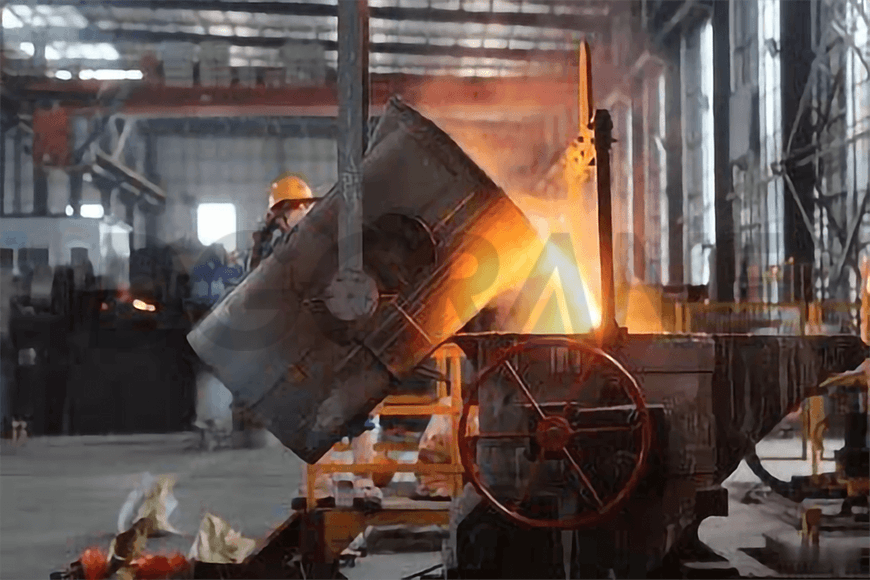
Other Processes
Casting involves pouring molten metal into molds to produce castings. The casting undergoes spheroidization, and additional processes like sand removal shot blasting, and polishing are required.
The casting process includes melting, pouring, and cooling, which can result in defects like porosity, gas pockets, and oxide inclusions. Different cooling rates can lead to significant variations in mechanical properties.
Forming Speed
Casting has a faster forming speed and allows for mass production of castings in one go. However, the internal structure of castings is prone to gas pockets.
Strength and Toughness
Cast metals have a honeycomb-like molecular structure with a grain size of around 80µm.
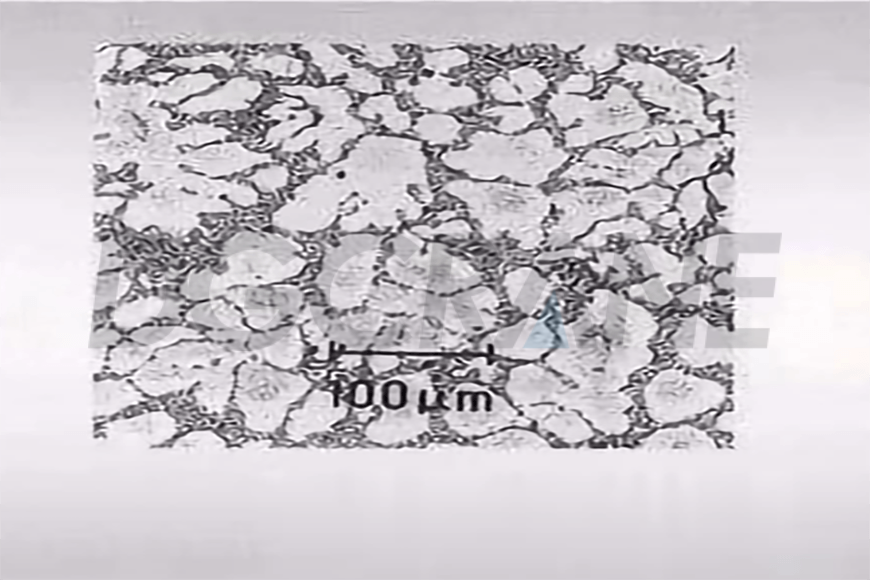
Overall Performance and Cost
Cast wheels are more brittle, with lower impact resistance, and cannot undergo heat treatment, resulting in lower strength and hardness. However, they are more affordable and have a shorter production cycle.
Applications
Cast wheels are suitable for light-duty cranes, such as small bridge cranes used in material yards or production workshops, meeting usage requirements while being cost-effective.
If you have any questions about selecting crane wheels or need further consultation, please feel free to contact our expert team. We are dedicated to providing professional advice and services to help you make the best choice.
Contact Details
DGCRANE is committed to providing the professional Overhead crane products and relavent service. Exported to Over 100 Countries, 5000+ Customers Choose Us, Worth to be Trusted.
Get In Touch
Fill out your details and someone from our sales team will get back to you within 24 hours!














































